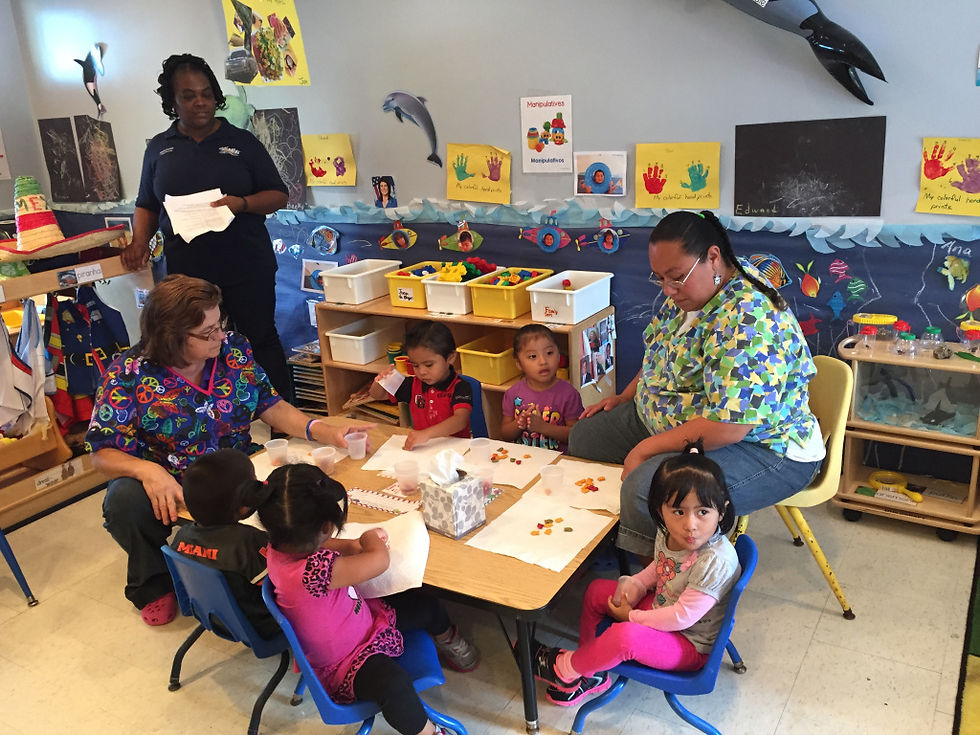Guest Post: Education Starts with the Very Young
- lsaunders07
- Nov 3, 2021
- 3 min read
Dr. David Conde is the President for North America of the Chamber of the Americas. He currently serves as the President of the ECMHSP Board of Directors and is a contributing writer for La Voz Bilingüe. This is his latest article.
For me, my early educational journey was a messy business with many stops and starts as we traveled the migrant and seasonal work route around the country. We could not start the school until well into the academic year and had to leave early to start again working the fields from state to state.

As a child, Dr. David Conde struggled to succeed in the classroom due to his family’s migrant lifestyle; he brings these personal experiences into the ECMSHP Board of Directors meetings.
So, I did not have to imagine what that did to my academic progress and the future probability of not finishing K-12 and becoming another statistic. To this day, I cherish the memory of being able to stay in one place for the time it took to start and finish junior high school.
Fortunately, I was a lucky migrant child of a mother who had an 8th grade education and taught me to read and write in the evenings after work. I remember skipping block lettering and learning to write in cursive in English and Spanish because that was the way she taught me.
The most interesting and at times, glamorous part of my student journey was at the universities that I attended and the class discussions about meaningful subjects for a scholar. It was also in higher education that I learned that by the age of six a child has acquired most of the learning components and concepts that are the basis for the intellectual awareness that will follow the rest of the life experience.
It dawned on me that K-12 and the college experience was really an elaboration of the basic structures acquired during the pre-K years. I realized that the time spent with my mom in the early years as an infant and toddler learning about letters and stories were fundamental to what I became as a learned person.
Today we have early childhood institutions that are vital learning centers to the very young. The most important for children of families with scarce means is Head Start, a federal program chartered to address the important early childhood years.

Children of farmworker families are able to play and learn in ECMHSP’s Head Start centers located along the East Coast, from Lake Okeechobee, Florida, to Lake Erie, Pennsylvania.
Dearest to my heart in this area is East Coast Migrant Head Start Project, a program that serves over three thousand children of migrant worker families along an agricultural route from Florida to Pennsylvania as they harvest the food we put on the table every day. The initiative takes children from six weeks to five years of age and puts them on an intellectual journey in two languages that prepares them for the public schools at the Kindergarten level.

As President, Dr. David Conde leads the ECMSHP Board of Directors in making important decisions on how to best serve the migrant farmworker community.
My colleagues and myself on the board of directors look forward to every report on the progress of the effort and try to find additional ways to enrich the experience of everyone from the staff to the children and parents so that the East Coast award-winning effort makes the biggest difference in the lives of is an important part of the next generation of Americans. Advocacy for these economically challenged and mostly Latino families is an imperative as it is the genius in these children that will find a place in the future leadership of a country that is changing as we speak.
When we visit our schools and centers, we see those eager faces that absorb so much of the Head Start experience. Parents help guide that experience as they take time out of work to partner with staff and other policy makers to make the effort work.
Spending time with these parents reminds me of my mother and the care she took of me in the fields and in our temporary homes. In this case however, there is help in learning the ABCs.
[Published in La Voz Bilingüe on August 10, 2016.]
_transparent%201.png)



Comments